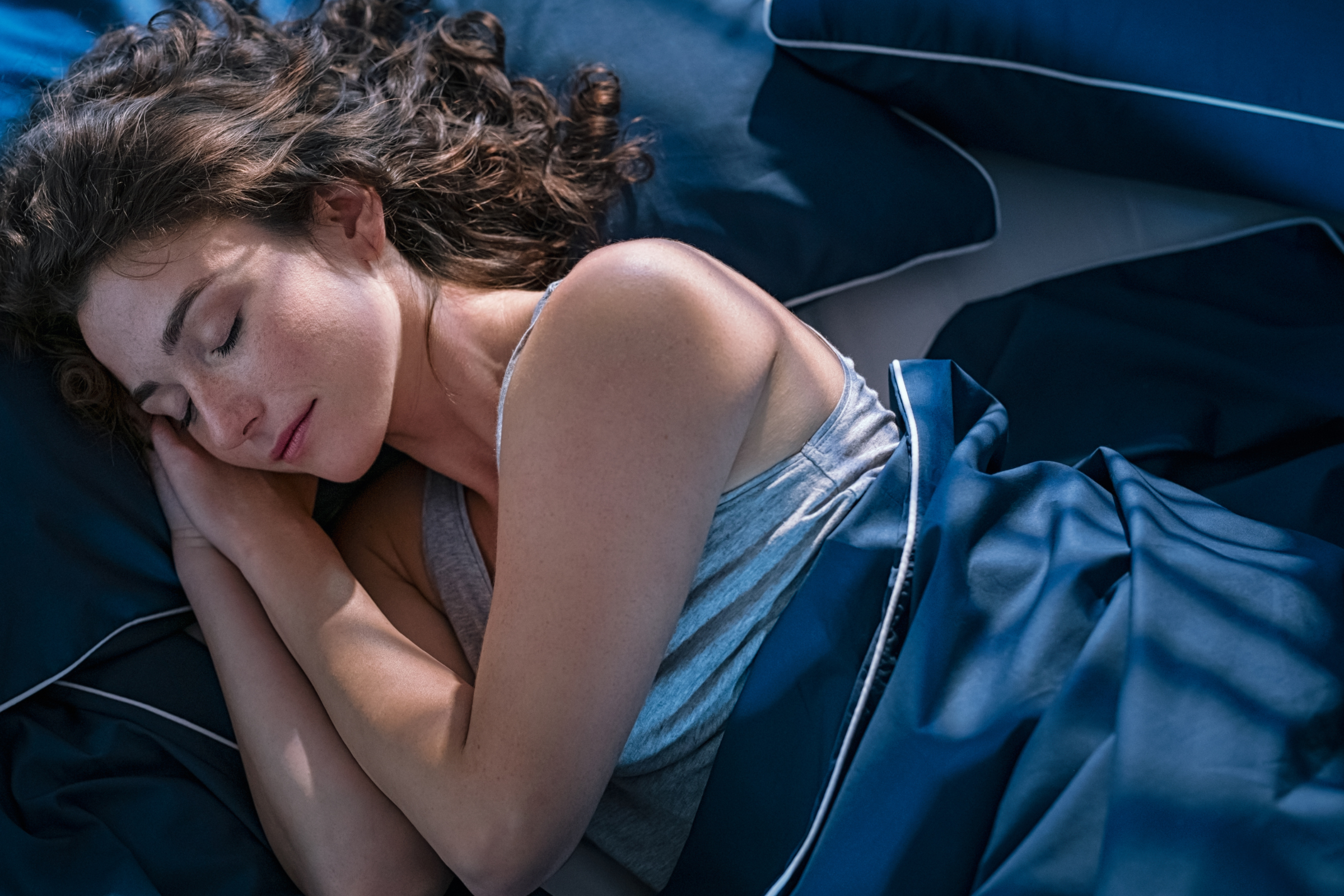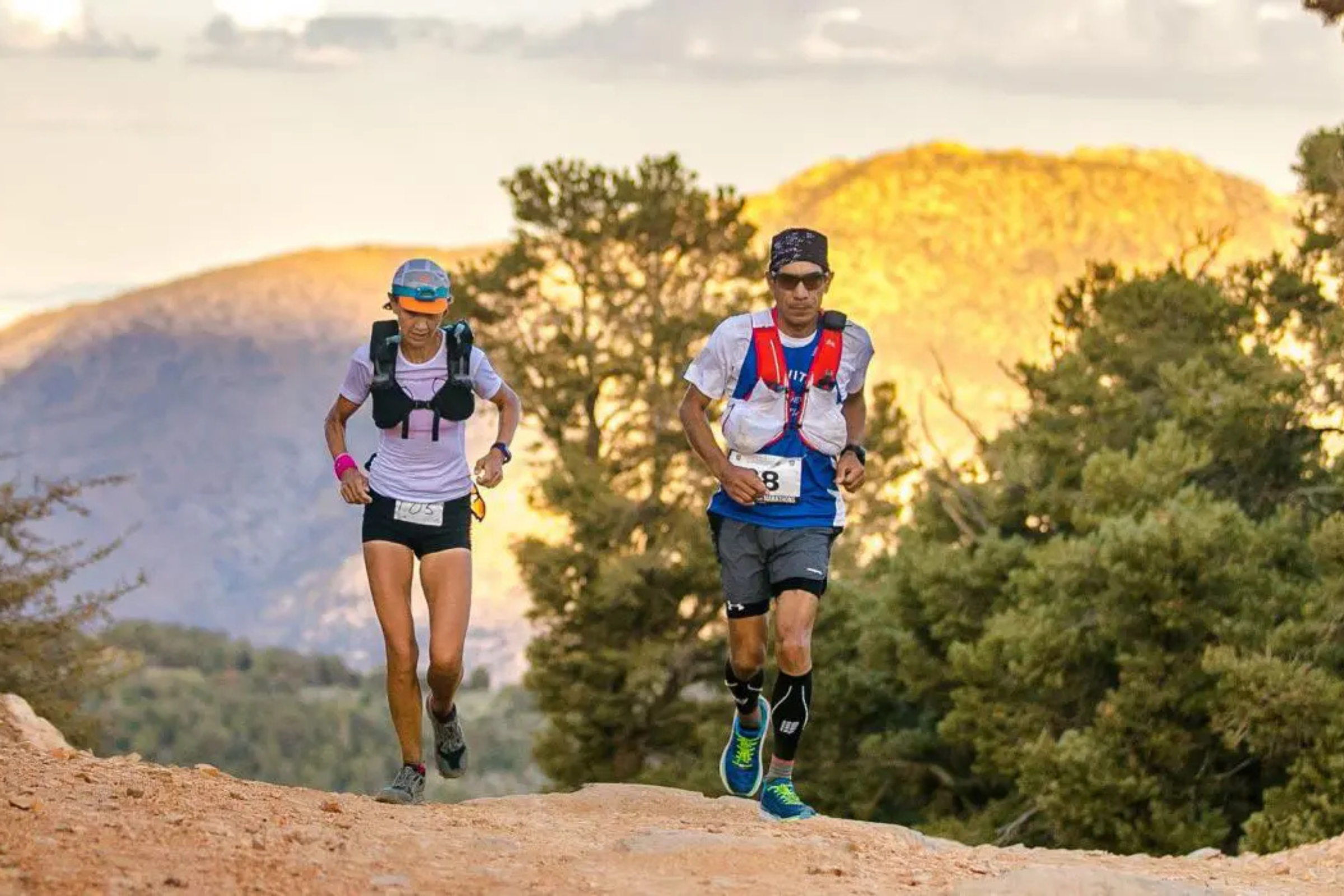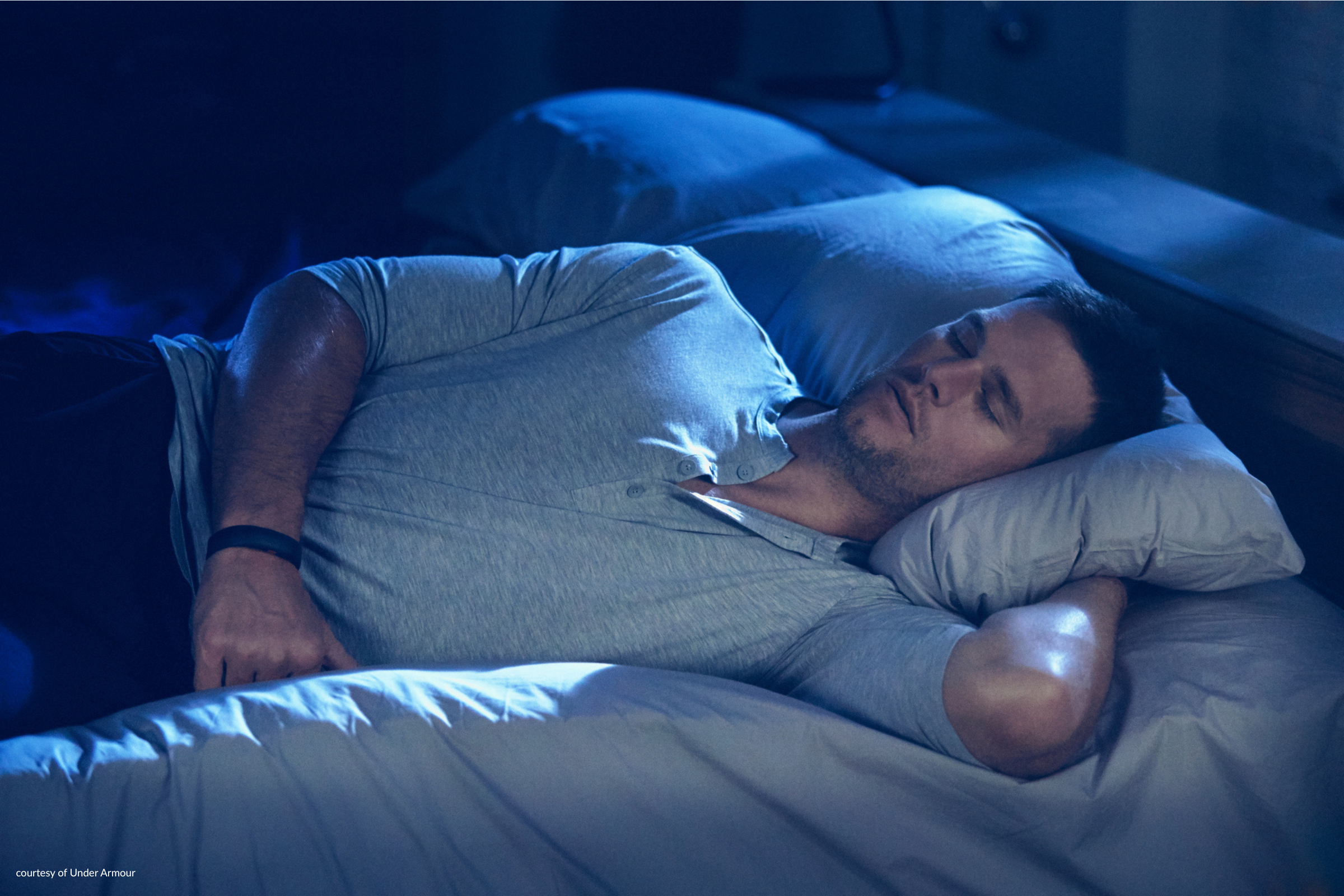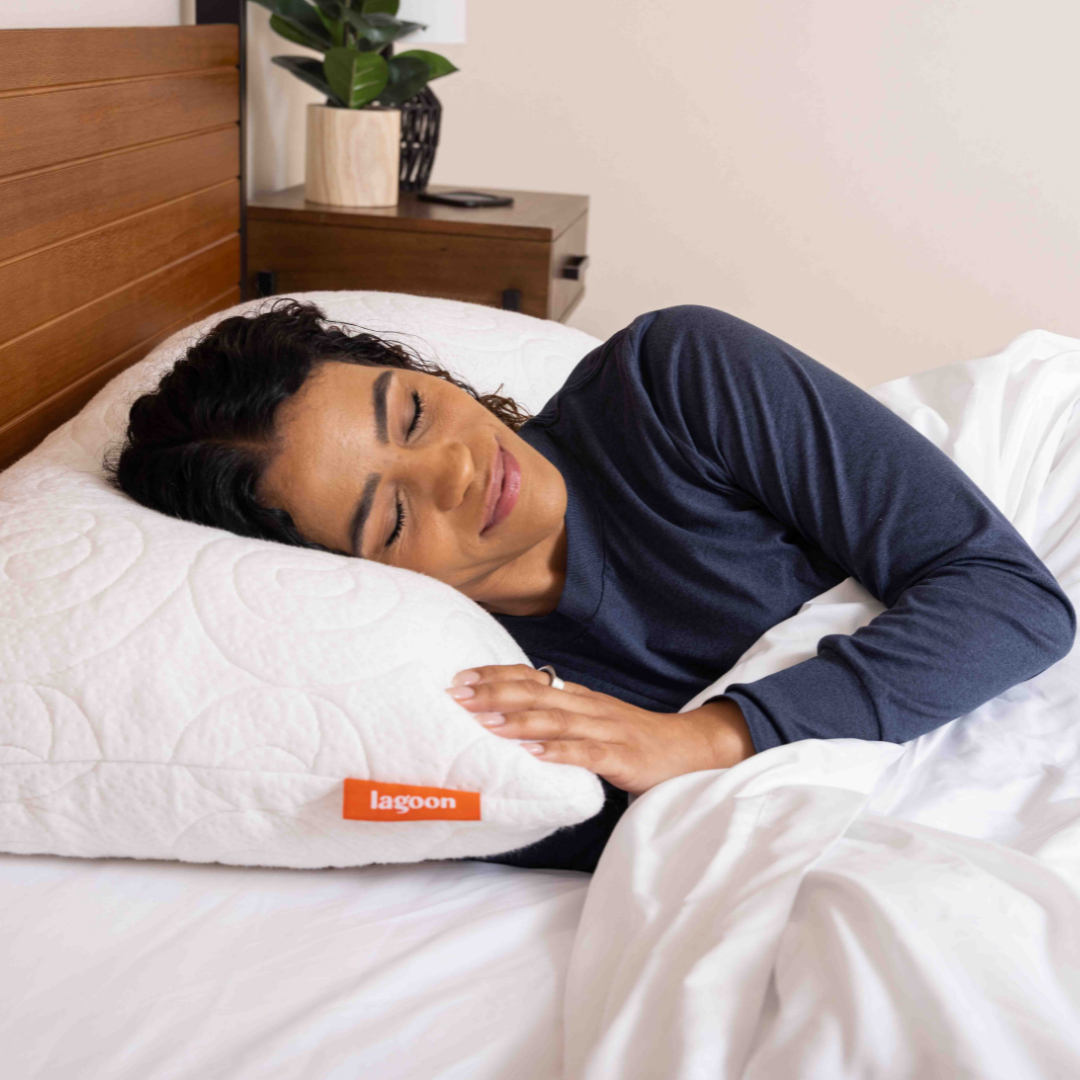Optimal sleep and a consistent fitness routine create a positive feedback loop that can make or break your next marathon performance. On the one hand, quality sleep enhances endurance, muscle recovery, and mental focus - and in return, consistent training improves sleep quality by stabilizing circadian rhythms and promoting deeper rest.
This cycle also builds over time which leads to stronger performance, faster recovery, and better overall health and longevity. So, if you're training for a marathon, know that syncing your sleep and workouts is one of the smartest moves you can make - to be best prepared for race day and for lifelong resilience.
How Sleep Improves Marathon Performance
Getting enough high-quality sleep can dramatically improve your running performance across multiple physiological and psychological dimensions. Sleep enhances endurance, perceived effort, reaction time, muscle recovery, and mental focus - all critical components for marathon success.
1. Sleep Enhances Endurance and Stamina
Research has shown that adequate sleep plays a key role in endurance capacity by supporting energy metabolism and reducing fatigue accumulation. Sleep is essential for restoring glycogen stores, the primary fuel source for long-distance runners, and ensuring optimal oxygen utilization during endurance exercise. Inversely, studies also show that sleep deprivation can impair aerobic performance and reduce exercise capacity, particularly in endurance-based sports.
In the words of the great Eliuid Kipchoge, "I make sleep a top priority, especially during peak training. Without it, you can’t expect to run your best on race day."
2. Sleep Lowers Perceived Effort and Improves VO2 Max
Research has shown that individuals with good sleep quality exhibit higher VO2 max values compared to those with poor sleep habits, demonstrating a direct link between rest and aerobic performance. Additionally, sleep deprivation can reduce time to exhaustion by approximately 11% during prolonged exercise at 80% of VO2 max. This means that well-rested marathoners feel like running is easier, which can be a game-changer over 26.2 miles.
3. Sleep Improves Speed and Reaction Time
Fast marathon times require not just endurance but also neuromuscular coordination. Luckily, sleep is directly linked to reaction time, with chronic short sleepers exhibiting slower reaction times compared to those who get sufficient sleep, emphasizing the importance of rest for neuromuscular coordination..
"The time spent outside of training is training—and is just as valuable of a commodity as the 20-mile long run. So, focus on two key recovery tools: quality sleep and food," says Shalane Flanagan, 2017 NYC Marathon champion.
4. Sleep Enhances Mental Toughness and Focus
Marathon running is as much a mental challenge as a physical one, and sleep is exactly what the doctor ordered to ensure you’re mentally ready to run. Research has shown that sleep loss increases negative mood states such as anxiety, depression, and fatigue while diminishing positive emotions, making it harder to stay mentally strong during long runs. Additionally, sleep deprivation amplifies amygdala activity, the brain region responsible for emotional responses, leading to more intense reactions to stressors and decreased emotional regulation.
Which Sleep Phases Boost These Running Benefits?
Different sleep stages contribute to different aspects of training and performance:
-
Deep Sleep: Muscle repair, growth hormone release, glycogen restoration
-
REM Sleep: Motor skill learning, reaction time, emotional regulation
-
Light Sleep: Memory processing, cardiovascular recovery
Ensuring you get 7-9 hours per night, possibly more during heavy training weeks, optimizes these phases to improve race-day readiness.
How Marathon Training Improves Sleep Quality
The relationship between sleep and running works both ways. While sleep enhances training, training also helps improve how well you sleep—creating a cycle that leads to better performance and better recovery.
1. Exercise Helps You Fall Asleep Faster and Sleep Longer
Research indicates that regular exercise helps individuals fall asleep faster and improves overall sleep duration. A meta-analysis found that consistent physical activity reduces sleep onset latency, meaning people fall asleep more quickly on nights they train. This is in part due to the fact that physical exertion increases adenosine, the chemical in your brain that signals sleepiness.
2. Running Enhances Deep Sleep and Recovery
Regular endurance training has been linked to increased deep sleep, the sleep stage crucial for muscle repair, hormone release, and overall recovery. Studies suggest that individuals who engage in consistent aerobic exercise experience improved sleep architecture, including longer durations of deep sleep and fewer nighttime awakenings.
3. Reduces Stress and Nighttime Wake-Ups
Physical activity is a natural stress reliever, lowering cortisol and balancing the autonomic nervous system. Runners experience 30% fewer night-time wake-ups compared to sedentary individuals.
4. Exercise Regulates Circadian Rhythms
Training outdoors, particularly in the morning and in the sunlight, helps anchor your circadian rhythm, making it easier to fall asleep at night and wake up feeling refreshed. Morning exercise has been shown to shift melatonin production earlier, helping you feel naturally sleepy at night.
How the Sleep-Fitness Cycle Boosts Longevity and Health
When sleep and training are in sync, the benefits extend far beyond the next race. This combination leads to:
-
Lower risk of chronic disease (heart disease risk drops by up to 48%)
-
Increased lifespan (optimal sleep and exercise are linked to a 20-30% reduction in all-cause mortality)
-
Improved immune function (runners who sleep well are 50% less likely to get sick than those with poor sleep patterns)
Dr. Matthew Walker summarizes it well: “Sleep and exercise are the two most powerful, legal performance enhancers. Used together, they are a longevity superpower.”
Understanding the relationship between sleep and marathon training is critical to reaping the benefits from both. So remember that prioritizing consistent, high-quality sleep will improve endurance, speed, recovery, and mental resilience. And at the same time, regular endurance training will help you sleep deeper, recover better, and feel stronger every day. If you want to unlock your best performance, don't just train hard—sleep hard, too.







